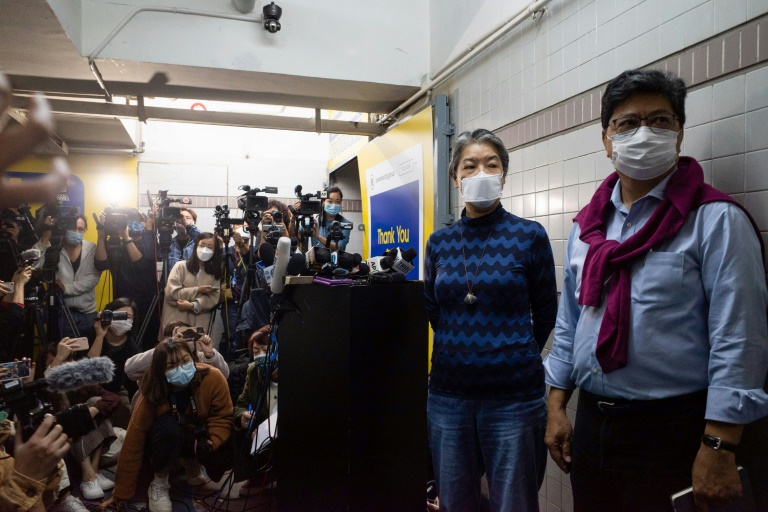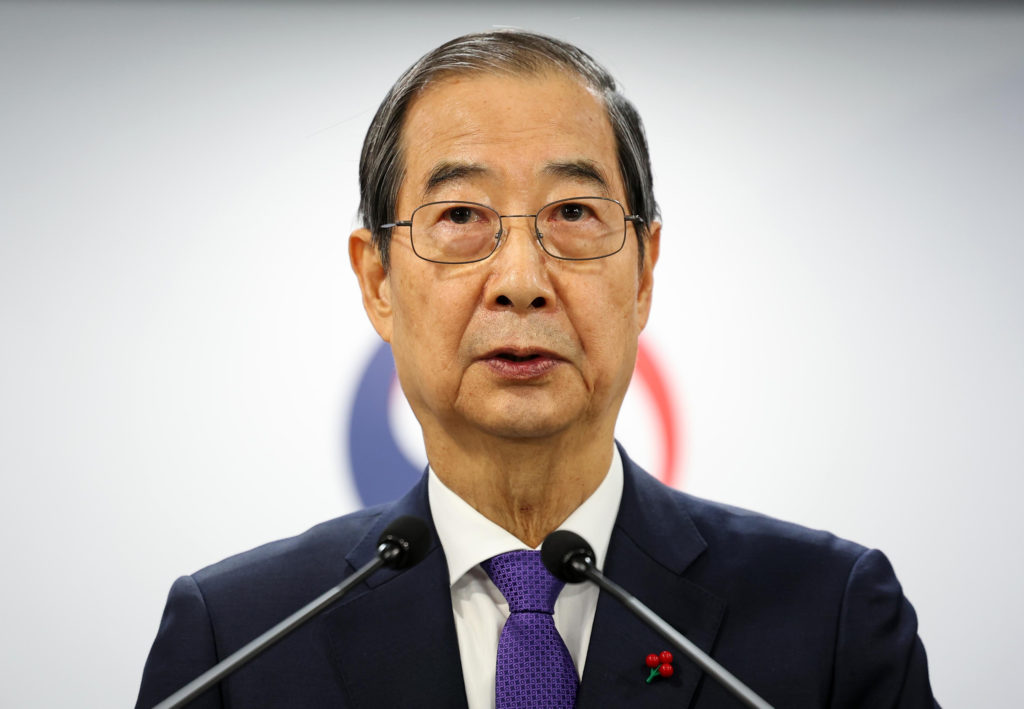Journalists from Hong Kong’s CitizenNews decried plummeting press freedoms as they shut down Monday, saying they no longer felt safe to publish after a rival outlet’s staff were arrested for “sedition”.
One of the most popular online news outlets in Hong Kong with more than 800,000 social media followers, CitizenNews is the third media outlet to shutter as Beijing oversees a sweeping crackdown on dissent.
The crowdfunded non-partisan platform, founded in 2017 by a group of veteran journalists, made its shock closure announcement on Sunday and said its website would stop updating from midnight Tuesday.
On their final day operating, reporters made clear their decision was fuelled by fears caused by a police raid last week on Stand News.
“We have been trying our best not to violate any laws but we can no longer see clearly the lines of law enforcement and we can no longer feel safe to work,” CitizenNews co-founder Chris Yeung, a former president of the Hong Kong Journalists Association, told reporters.
“Journalists are also human beings with families and friends,” he added.
Yeung said their newsroom had not been contacted by law enforcement but that they decided to close based on what they saw was happening to the media.
“Can we work on some ‘safe news’? I don’t even know what is ‘safe news’,” chief editor Daisy Li, also a former HKJA president, told reporters.
– ‘Deeply saddened’ –
Hong Kong has long been a regional and international media hub, even as the city’s press freedom ranking steadily slipped over the last decade.
But in the last 18 months, unprecedented changes have swept through the industry, primarily targeting local media.
Outspoken tabloid Apple Daily collapsed last year after its assets were frozen and key leaders arrested under a new national security law over the content it published.
Stand News closed last week after seven current and former members were arrested.
The company, its co-founder Chung Pui-kuen and last chief editor Patrick Lam were charged with “conspiracy to publish seditious publications” and were denied bail.
With a few exceptions, remaining local outlets have increasingly toed the official line while new government appointees have turned public broadcaster RTHK into something more closely resembling China’s state media.
Many international media outlets still have Asia headquarters in Hong Kong including AFP, Bloomberg, the Wall Street Journal, CNN, the Economist and the Financial Times.
Others such as The New York Times and The Washington Post moved to or opened new Asia offices in South Korea because of the political situation in Hong Kong.
Last month, the Hong Kong administration threatened legal action against The Wall Street Journal and the Financial Times for editorials critical of government policy.
The HKJA said Monday it was “deeply saddened and sorry” to hear of the CitizenNews closure.
“Reputed as Asia’s World City, free flow of information and freedom of press are indispensable for Hong Kong,” the group wrote.









